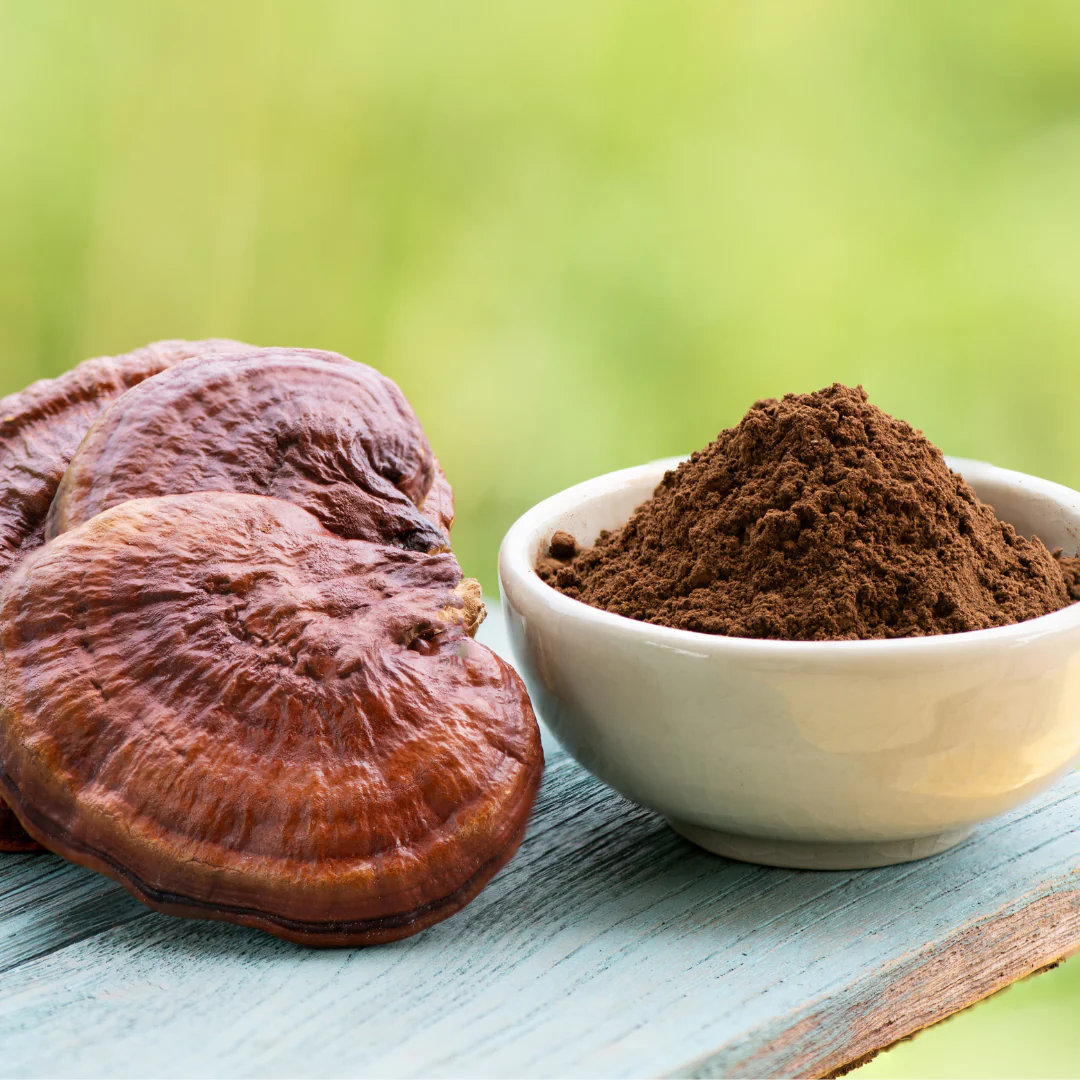Reishi Extract, derived from the Ganoderma lucidum mushroom, is highly valued in traditional medicine for its potential health benefits. Referred to as the “Mushroom of Immortality” in Chinese medicine, Reishi has been used for centuries to promote health, longevity, and well-being. It is particularly known for its immune-boosting properties and potential anti-cancer effects, but like any supplement, it also comes with some considerations regarding its safety and side effects.
Here’s a closer look at the benefits, potential side effects, and recommended use of Reishi Extract:
Key Benefits of Reishi Extract
1. Immune System Boost
One of the most widely recognized benefits of Reishi extract is its ability to support and enhance the immune system. Research suggests that compounds in Reishi, including polysaccharides, can stimulate the production and activity of white blood cells, essential for fighting infections and diseases. Reishi extract may also influence the production of cytokines, proteins involved in immune responses.
2. Anti-Cancer Properties
Reishi extract has shown potential anti-cancer effects in several studies. Some lab research indicates that Reishi can help inhibit the growth of cancer cells and even promote cancer cell death. This has made it a subject of interest for those seeking complementary cancer treatments. Studies have explored its effects on various types of cancer, including prostate, colorectal, and breast cancer. While more clinical trials are needed to confirm these findings, preliminary results are promising.
3. Anti-Fatigue and Mood-Enhancing Effects
Reishi extract is often used as a natural remedy for fatigue and low mood. Some studies have found that it can help reduce feelings of fatigue and improve overall well-being, especially in individuals with chronic conditions or cancer. Additionally, Reishi may have adaptogenic properties, meaning it can help the body better cope with stress and anxiety, leading to improvements in mood and mental health.
4. Heart Health and Blood Sugar Regulation
Some studies suggest that Reishi extract may have a beneficial effect on cardiovascular health by reducing blood pressure and improving cholesterol levels. It is also believed to help regulate blood sugar levels, which could be particularly beneficial for people with type 2 diabetes. However, more research is needed to fully establish its role in managing heart disease and diabetes.
5. Antioxidant Properties
Reishi extract contains powerful antioxidants that can help combat oxidative stress, which is linked to aging and various diseases. Antioxidants neutralize free radicals in the body, protecting cells from damage and supporting overall health. Reishi’s antioxidant properties are believed to contribute to its potential anti-aging effects.
6. Liver Health
Some studies indicate that Reishi extract may help protect the liver from damage, improve liver function, and assist in detoxification processes. It may also support the regeneration of liver cells, making it useful for those with liver disorders.
Potential Side Effects and Risks
While Reishi extract offers numerous health benefits, it is not without potential side effects. Most people can consume Reishi safely in moderate amounts, but high doses or prolonged use may lead to issues in some individuals. Here are some common and potential side effects:
- Digestive Issues: Some individuals may experience gastrointestinal upset, including nausea, diarrhea, or bloating, especially if the extract is taken in large quantities.
- Liver Concerns: There have been reports of liver toxicity with the use of Reishi, though these cases are rare. People with existing liver conditions should consult a healthcare provider before using Reishi.
- Allergic Reactions: Rare allergic reactions, including skin rashes and itching, have been reported by some individuals, especially those who are allergic to mushrooms.
- Interactions with Medications: Reishi extract may interact with certain medications, particularly blood thinners (anticoagulants) and immunosuppressants. It is important to consult with a healthcare professional if you are on any medication.
Recommended Dosage
The dosage of Reishi extract can vary depending on the form you are using (e.g., powder, capsules, liquid extract). A typical dose ranges from 1.5 to 9 grams per day of Reishi extract. For powdered extract, the dose is usually lower, around 1 to 2 grams per day. However, it is always recommended to follow the manufacturer’s instructions or consult a healthcare provider for personalized guidance.
Note: It’s essential to use high-quality, standardized Reishi extract to ensure safety and efficacy.
Conclusion
Reishi extract offers a range of potential health benefits, from boosting the immune system to supporting heart health and reducing fatigue. Its anti-cancer properties are also of significant interest, although more clinical research is needed to confirm these effects. While it is generally considered safe for most people, there are some potential side effects and interactions to be aware of, particularly with long-term use or in individuals with pre-existing conditions.
If you’re considering incorporating Reishi extract into your routine, be sure to consult a healthcare professional to determine the appropriate dosage and ensure it’s safe for you.

